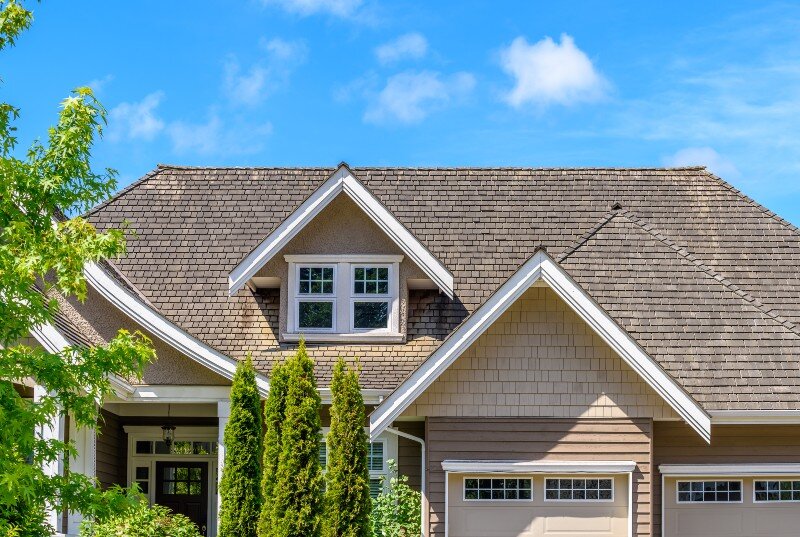
Are you selling a house and wondering about all the costs associated with the home sale? Are you wondering what average closing costs are? Does the buyer or seller pay closing costs?
There are numerous costs to consider. Property taxes, recording fees, transfer taxes, attorney fees, and seller closing costs. In the guide below, you will learn the answer to, “Does the buyer or seller pay closing costs?” You will learn about seller concessions, the costs of selling a house, and how to calculate closing costs.
If you’re completing a real estate transaction, keep reading to find out everything about closing fees and more.
Does the Buyer or Seller Pay Closing Costs?
Whether the buyer or seller pays closing costs depends on the home purchase contract. The mortgage loan companies (sellers and buyers) also need to agree to the closing costs in the contract. Generally, the buyer’s closing costs are much higher than the seller’s.
However, home sellers do have some closing costs they need to cover. The fewer closing costs for sellers allow them to save money during the home sale.
On closing day, the buyers and sellers must pay all the upfront fees and expenditures known as closing costs. Generally, when it comes to new home sales, the closing costs reach 3 to 6 percent of the house’s purchase price.
Generally, closing costs will depend on the following:
- Property taxes
- Title insurance costs
- Home inspection fees
- A real estate commission for your realtor
- The transfer fee
- Homeowners’ insurance costs and insurance premiums
You may want to seek the advice of your real estate agent to negotiate seller concessions and how best to split closing costs with the home buyers. Generally, buyers cover most of the closing costs including the ones related to the property like HOA fees, home loan costs including the loan origination fee, and the interest rate associated with each mortgage payment.
The buyer is responsible for any fees associated with the mortgage. Generally, the buyer receives a Closing Disclosure three days before the closing date. That form breaks down all of the final costs necessary to complete the home sale. Buyers will also need to pay the home appraisal fee.
Essentially, the buyer will end up covering more of the closing costs.
Should the Seller Cover the Closing Costs
The seller can cover more of the closing costs to attract more home buyers. That is especially important in a buyer’s market. With mortgage interest rates from nearly every lender growing, the likelihood of a buyer’s market appearing shortly is becoming more of a reality.
First-time home sellers should work with their real estate agents to gain more interest in their properties via seller concessions. You can even increase your overall home value if you promise to cover more of the closing costs.
Generally, seller concessions can help make the deal more attractive to home buyers. These types of discount points can bring a buyer to bid on a house that’s spent too much time on the market. If you’re selling a house in a poor condition or with an old-fashioned atmosphere, providing seller concessions to cover more closing costs can attract buyers.
You should also close out all liens on the house before putting it up for sale to ensure more buyers bid on the property.
Furthermore, sellers often cover the real estate commission fees of the seller’s agent and the buyer’s agent. Therefore, the seller will cover around 6 percent of the home price in closing costs. This amounts to 3 percent given to each real estate agent.
Along with the title search, the seller is also responsible for paying the buyer’s title insurance policy. That is usually part of the conventional loan lender’s policy. Along with title fees and the owner’s title insurance, the seller may need to cover prorated property taxes for part of the year before completing the home sale.
Likewise, the seller needs to cover the homeowners association fees for the month before the closing ends. For an FHA loan, the maximum seller contribution is usually 6 percent. For a VA loan, the maximum seller contribution should reach only 4 percent. Yet, this may also depend on the overall loan amount.

How Much Are Closing Costs?
Closing costs usually cost around 3 to 6 percent of the total home loan amount. Therefore, if you have a $300,000 loan on your house, you may end up spending as much as $9,000 to $15,000 in closing costs.
Your closing fees will depend on a buyer’s loan type and the size of the down payment the buyer will put down. Also, the mortgage lender’s requirements and the state of the home sale will determine closing costs.
Sellers also have to cover the real estate agent commission fees, which are usually 6 percent of the final home sale price.
In 2021, the average closing cost for a single-family home in the United States was $6,905. However, these costs range depending on the region of the home sale. For instance, the most expensive closing costs were in Washington D.C. where the average closing cost for a house with taxes reached $29,888.
On the other end of the scale, Missouri had the lowest average closing cost in 2021, which reached $2,061 for every house sold.
The closing cost process consists of sending a mortgage application and receiving a loan estimate in approximately three business days. That document will provide you with information on the loan’s specifics and estimated closing costs.
The estimates are not exact amounts and the final closing costs may end up slightly higher. However, there should not be any major surprises in terms of fees on closing day.
Calculating Closing Costs
The home selling process in NC, California, and elsewhere will involve home viewings, buyers bidding on the house, and negotiating a contract for the home sale. That involves negotiating closing costs between the buyer and seller. You’ll want to calculate closing costs ahead of time. Then, on closing day, you will need to sign paperwork and pay specific closing costs.
To calculate closing costs, you may need to use a closing costs calculator. For instance, if the buyer has signed on for a mortgage loan amount of $200,000, the total closing costs should end up around $6,222.
The inspection fees, origination charges, title insurance, and other service fees reach $3,813. Your escrow fees and pre-paid expenses will end up at around $2,409. To break down the costs further, the origination charge should hit $775, the appraisal fee will cost $464, the credit report fee will end up at $27, and the flood certification costs $11.
A home inspection should cost around $141, the title search and title insurance will reach about $500, and the attorney with closing fees will cost $785. Surveying fees reach $137 while postage and courier fees end up around $100.
The buyer will also need to have their down payment amount on closing day. For instance, if the downpayment is $50,000, then the total closing costs on closing day will reach $56,222.
The best way you can calculate closing costs is by using an online closing cost calculator.
Reasons Why You Might Cover Closing Costs
The main reasons to cover certain closing costs align directly with the home sale contract. Both the buyer and seller have certain responsibilities for each part of the closing costs. For example, the buyer is responsible for:
- Credit report fees
- Appraisal fees
- Title search fee
- Loan-based costs
- Home inspection fee
- Buyer’s attorney costs
- Survey fee
The seller, however, is responsible for covering other closing costs like:
- Buyer’s title insurance policy expenses
- Seller’s attorney fees
- Recording costs and transfer taxes
- Liens or outstanding amounts left on the real estate property
- Mortgage payoff and possible prepayment penalty
Sometimes, the seller may want to cover more of the closing costs. Sellers do this to entice more buyers if the property is on the housing market for too long. Essentially, the seller provides concessions to get more bids on the house.
Conclusion
Now, you no longer need to wonder, ‘Does a buyer or seller pay closing costs?’ Now you know that both the buyer and seller cover closing costs. They generally split the costs, but buyers often have to cover most of these expenses. Yet, the seller can provide concessions and entice more buyers by covering more of the closing costs.
If you’re having trouble finding home buyers and no one is bidding on your property, you may want to consider seeking out a cash home buyer. Cash home buyers in North Carolina can provide you with a cash offer and complete the home sale in only a few weeks.
Cash buyers can meet your needs if you want to sell a house fast in Monroe and sell the home in its as-is condition. Luckily, we buy houses Charlotte locals love, so call us today.
